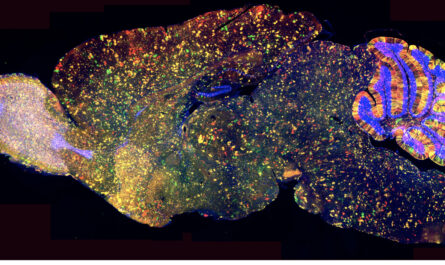A recent study conducted by researchers at Yale University has identified key genes that play a crucial role in the development of the primate brain. The team used brain organoids, which are three-dimensional models of the developing brain, to examine the changes occurring during the development of macaque monkeys and humans. By comparing their findings with previous studies on mice brains, the researchers were able to uncover the molecular origins of the developmental differences between primates and mice.
One of the key differences observed in the study was the increased activation of GALP (Galanin-like peptide) in the macaque and human brains. GALP, a peptide known for its involvement in energy metabolism and appetite, helped stimulate the proliferation of neural stem cells in the primate brains. This activity was not found in the mouse brain, indicating that GALP may play a role in the increased size and complexity of the primate brain over evolutionary time.
The researchers also discovered genes within neural stem cells that have been linked to neuropsychiatric disorders, such as schizophrenia and bipolar disorder, during the early stages of fetal brain development. This suggests that the origins of these diseases may occur much earlier in development than previously believed.
Understanding how primate brains develop and the origins of higher cognitive functions is crucial for gaining insights into human brain evolution. The study sheds light on the molecular events that drive these developmental differences, providing a better understanding of the unique characteristics of primate brains.
The findings, published in the journal Science, contribute to the ongoing efforts of the BRAIN Initiative Cell Network, a collaborative project aimed at creating a comprehensive library of cell types in the brain. The research is part of a series of 21 papers published by the network, furthering our understanding of the intricacies of the brain and its development.
This research has important implications for the field of neuroscience and could potentially lead to new insights into the diagnosis and treatment of neuropsychiatric disorders. By uncovering the molecular mechanisms behind primate brain development, scientists can gain a deeper understanding of the factors that contribute to the evolution and complexity of the human brain.
*Note:
1. Source: Coherent Market Insights, Public sources, Desk research
2. We have leveraged AI tools to mine information and compile it




